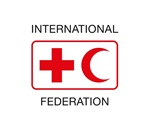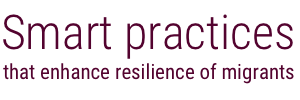Provision of information to migrants at point of origin to reduce the risk to community members of trafficking.
MAITI Nepal, one of the NGOs supported with funding through the Rights of Migrants in Action Project in Nepal, works on raising awareness in vulnerable communities to reduce the risk of trafficking, particularly of women and children. Programmes focus on educating communities about human trafficking and other forms of exploitation and the risks their daughters and sisters could face at the hands of traffickers. MAITI Nepal conducts mass awareness campaigns to increase the knowledge in communities of the risks of trafficking.
The organization also encourages communities to build early warning and support systems. Adolescent girls, students, teachers and Village Development Committees are trained in anti- trafficking measures to reduce vulnerability to traffickers. The trainings teach participants the following: (a) how to form anti-trafficking groups; (b) how to establish information and resource centres; (c) how to create community outreach programmes; (d) how to conduct cross-sectoral meetings; and (e) how to network with other agencies working against trafficking and other forms of sexual exploitation. Though the trainings are focused on the above target groups, all other interested community members are welcome to participate.
In Zimbabwe, Together as One (an NGO funded by the Rights of Migrants in Action Project) disseminated information relevant to vulnerable migrant groups and raised awareness on how to prevent human trafficking at two festivals in Murewa and Chirundu.
11,052 people (mainly girls and women) provided information on safe migration; 36 trained in safe migration; 5,730 girls and women made aware of human trafficking.
Design. [P1] Reduces the vulnerability of communities to trafficking. [P3] Communities are included in building systems to help members to avoid trafficking.
- Logistical difficulties arise when organizing awareness programmes in remote areas, where they are most needed.
- Spectators of awareness programmes expect integration of all issues in a single show, which is difficult to do.
- Girls and women do not use information booths on safe migration in the Ministry of Foreign Affairs.
- Behaviour change takes time, so long-term awareness programmes should be planned.
- Local level stakeholders, police and other government entities have to be informed in advance to plan safety.
Smart practices
Smart practices report and database survey
About the report
People migrate in pursuit of a better life for themselves and their families. As described in the International Federation of Red Cross and Red Crescent Societies’ (IFRC) Policy on Migration, “migrants are persons who leave or flee their habitual residence to go to new places – usually abroad – to seek opportunities or safer and better prospects.
Read more
About the International Federation

